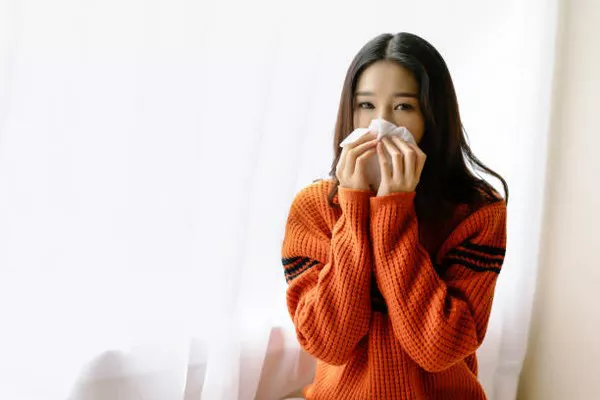As temperatures drop, the focus on allergies might not be at the forefront of our minds, but health experts caution that cold and dry weather can trigger respiratory and allergy issues.
Despite the natural resilience of our lungs to cold air, the upper airways in the throat and chest can be impacted, according to Dr. David Beuther, a lung specialist at National Jewish Health. While the air is humidified and body temperature by the time it reaches deep into the lungs, the upper airways can suffer from dryness and increased blood flow, leading to breathing difficulties.
Beuther explains, “The cold air can trigger spasm of the airways, tightness in the chest, shortness of breath, the need to rest, the need to use the inhaler.”
To mitigate these challenges and keep your lungs healthy in cold weather, a simple solution is recommended. Wearing a face scarf or mask that covers the nose and throat can help warm the air you breathe, limiting potential lung irritation.
Allergies, typically associated with spring and fall, can still be a concern in cold weather. Spending more time indoors due to the cold might expose individuals to indoor allergens. Beuther advises those prone to allergies to be prepared, stating, “If you’re somebody that doesn’t spend a lot of time in your home and you’re out at work and you’re outdoors, but now you’re indoors and spending a lot of time with your cup of tea, your book and your cat and you’re allergic to your cat, your allergies can get worse.”
Moreover, the risk of viruses increases as people spend more time indoors during cold weather. Beuther notes a rise in cases of respiratory syncytial virus (RSV), the flu, and COVID-19, attributing it to prolonged indoor gatherings.
As winter continues, health experts urge the public to be mindful of these potential respiratory and allergy challenges, taking simple measures like wearing a face scarf to protect against cold-induced airway issues.


